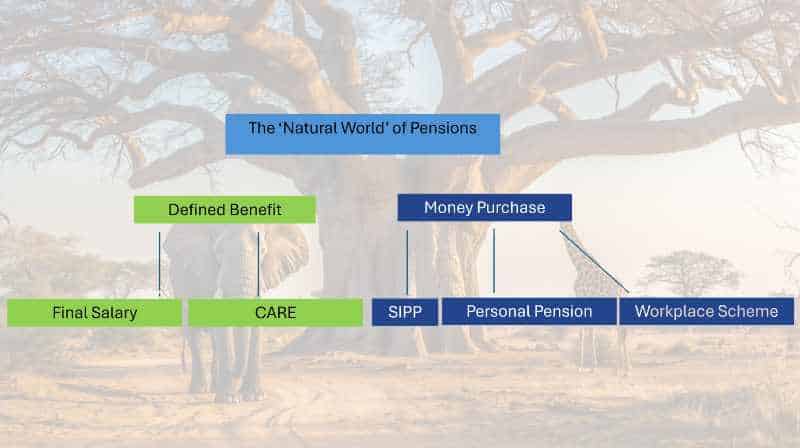
The American Declaration of Independence holds that:
…all men are created equal, that they are endowed by their Creator with certain unalienable Rights, that among these are Life, Liberty and the pursuit of Happiness.”
Americans are rightly proud of their constitution and for a legal framework written 235 years ago, it has (largely) stood the test of time. As with the French Constitution which codified the French Revolution motto of “Egalite, Liberte & Fraternite” (equality, freedom and brotherhood), these principles should be the basis of any civilised society. Far be it for me to question the American Constitution, but I don’t believe the pursuit of happiness to be the most appropriate term.
Of course, we all want to be happy. We enjoy looking back on happy memories and look forward to occasions where we expect to be happy. But is it the best emotion to be in pursuit of?
Happiness is a surface-level emotion. It’s a piece of the jigsaw, not the finished puzzle.
Happiness is temporary. We can’t be happy all of the time; as babies through to old age we experience times of happiness but also sadness. The ying and the yang; the latter makes the former all the more meaningful.
If we are in pursuit of something it implies a chase, possibly even a futile one. If we chase something can we ever be fulfilled? Or is the endless pursuit akin to a dog chasing its tail?
If we chase happiness can we ever be happy? Like the drug addict looking for the bigger and more enduring high or the materialist who is never sated with their latest purchase, the pursuit of happiness is a futile task. There is a Buddhist saying that trying to seek happiness through sensory gratification is like trying to quench your thirst by drinking saltwater.
It Has To Come From Within.
Jamie Smart in his book, ‘Clarity’, explains the problem of the “I’ll be happy when…” mentality. It reinforces the futile pursuit of happiness. “I’ll be happy when:
…I have more money”,
…I have a bigger house”
…I get that promotion”
….I retire”
All of those things may happen, but then you look to the next “I’ll be happy when…” target. Rinse and repeat.
Instead, he recommends looking inside at how you feel rather than the futile chase for the next thing.
If Not Happiness, Then What?
If happiness is a piece of the puzzle rather than the puzzle itself, what is the grand prize? The Holy Grail?
‘Joy’, ‘Contentment’, and ‘Fulfilment’ are words that infer greater meaning. In which happiness may, or may not, be a part.
In the ‘Book of Joy’, Archbishop Tutu and The Dalai Lama discuss what joy means to them. They described eight pillars that make up joy, all of which come from within us, not through the acquisition of material things or the pursuit of happiness. Those eight pillars are:
- Perspective
- Humility
- Humour
- Acceptance
- Forgiveness
- Gratitude
- Compassion
- Generosity
In Man’s Search for Meaning, Viktor Frankl, recalls those who survived the horrors of Nazi concentration camps were those who were able to attach a meaning to why they were there and had a reason to live. Nelson Mandela, Mother Teresa and Mahatma Gandi were three individuals who have left enduring marks on the world despite experiencing or witnessing terrible suffering.
Similarly, NHS workers, humanitarian aid workers and carers are fighting for causes that are bigger than they are and, in which, happiness is a rare emotion. In the Book of Joy, Archbishop Tutu explained how nothing beautiful comes without suffering:
“Childbirth is a metaphor for joy: nothing beautiful in the end comes without a measure of some pain, some frustration, some suffering. This is the nature of things.”
A Contented Retirement
Consider the contentment of the person who is enjoying an active retirement after a career of hard work in which they saved diligently or sold their business so they could spend it living their ideal lifestyle. Compare that to the ‘trust fund kid’ who is living a hedonic lifestyle but has been given it on a plate. Who is going to be the more fulfilled? To quote Warren Buffett on leaving money to his children:
(I will leave) enough money so that they would feel they could do anything, but not so much that they could do nothing. ”
The Greatest Joy
The Dalai Lama and Archbishop Tutu go on to explain in the Book of Joy that our greatest joy is seeking to do good for others. As a species we are designed to cooperate and help others, it is in our DNA. ‘Ubuntu’ is an ancient African term that translates to “I am because we are”, which means a person is a person through other people. We are made whole by other people; nobody can survive without others.
Helping others is a virtuous circle; the more we help others, the more joy we experience, and the more we experience joy, the more we can bring joy to others. That applies whether we are on the front lines in the NHS, behind the front lines in a war zone or helping in our local community. We are made whole by others.
Perhaps ‘life, liberty and the pursuit of joy’ or ‘life, liberty and the pursuit of contentment’ would be more appropriate. If I can live a joyous or contented life then I will be happy.
How you find joy will be up to you. It may be in the service of others, or in the creation of memories, all of which, I hope, will bring happiness along the way.
Photo by Nathan Dumlao on Unsplash






